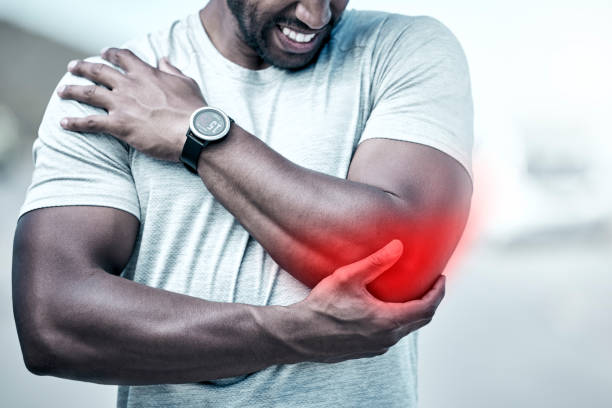Chronic Pain: The Things You Need To Learn

Chronic pain can be a persistent and debilitating condition which affects
millions around the world. It may hinder daily activities, impact negatively on
mental health, and significantly impact the quality of your living. Chronic pain
isn't well recognized and sufferers often have difficulty to discover a
solution. In this piece we'll discuss the definition of chronic pain the cause,
and how it can be managed.
What exactly is chronic pain?
Chronic pain can be defined as the presence of pain up to 12 weeks or more.
The conditions that can cause chronic pain are arthritis, fibromyalgia and
neuropathy. The chronic pain differs from acute pain, which is triggered due to
an injury or illness. The pain that is acute usually goes away when the
underlying cause is dealt with.
The causes of chronic pain
Chronic pain may result from a variety of things, such as:
Injury
If nerve damage or the injury does not heal correctly the injury can result
in chronic pain.
Medical Ailments
Chronic pain can be caused due to medical issues such as nerve pain,
fibromyalgia or arthritis. Whether you desire to discover fruitful information
on pain, you must browse https://www.institut-upsa-douleur.org/blog/
website.
Surgery
In the event of nerve injury, or the site of surgery doesn't heal correctly,
it can lead to chronic pain.
Life Factors
Lifestyle factors such as poor posture, inactivity, and being overweight can
result in chronic pain.
Symptoms and Chronic Pain
The symptoms of chronic pain can vary based on the origins. They may include
the following:
A pain that feels either dull, painful or stinging
Joint stiffness and muscle
Fatigue
Sleep disturbances
It can be a sign of mood changes. Examples include depression and
anxiety
Problems with concentration
Treatment Options for Chronic Pain
Controlling chronic pain may be difficult, however there are many treatment
options available, including:
Medicines
Medicines such as nonsteroidal anti-inflammatory drugs (NSAIDs), opioids, and
antidepressants can be used to manage chronic
pain.
Physical Therapy
It is possible to reduce pain through the practice of physical therapy as it
improves the flexibility and strength.
Complementary Therapies
Acupuncture, for example, massage therapy, and chiropractic treatment can
reduce pain and improve general health and well-being.
Lifestyle Changes
Lifestyle changes such as maintaining the right weight, practicing an upright
posture and taking part in regular exercise can also aid in managing chronic
painful.
Chronic pain
Alongside the treatment options mentioned above, there are many other coping
strategies that can aid in managing chronic pain. These include:
Mind-Body Techniques
Meditation techniques, such as mindfulness yoga, deep breathing may help
lower anxiety and stress which may cause chronic pain to worsen.
Support Groups
Support groups can provide emotional help as well as a feeling of belonging
to those suffering from chronic pain.
Cognitive Behavioral Therapy
CBT may help change negative thought patterns and behaviors which can cause
chronic pain.
Biofeedback
Biofeedback is a great way to instruct those who are interested in
controlling vital bodily processes like blood pressure and heart rate and can
alleviate pain.
Conclusion
Chronic pain can be a complicated and frequently misunderstood issue that could significantly affect the quality of life for a person. Although managing chronic pain is challenging, a variety of treatments are readily available. A lot of people experience relief by working with their physician and try out new approaches. Knowing the causes of chronic pain and their control can minimize the detrimental impact that it can have on our lives.
Коментарі
Дописати коментар